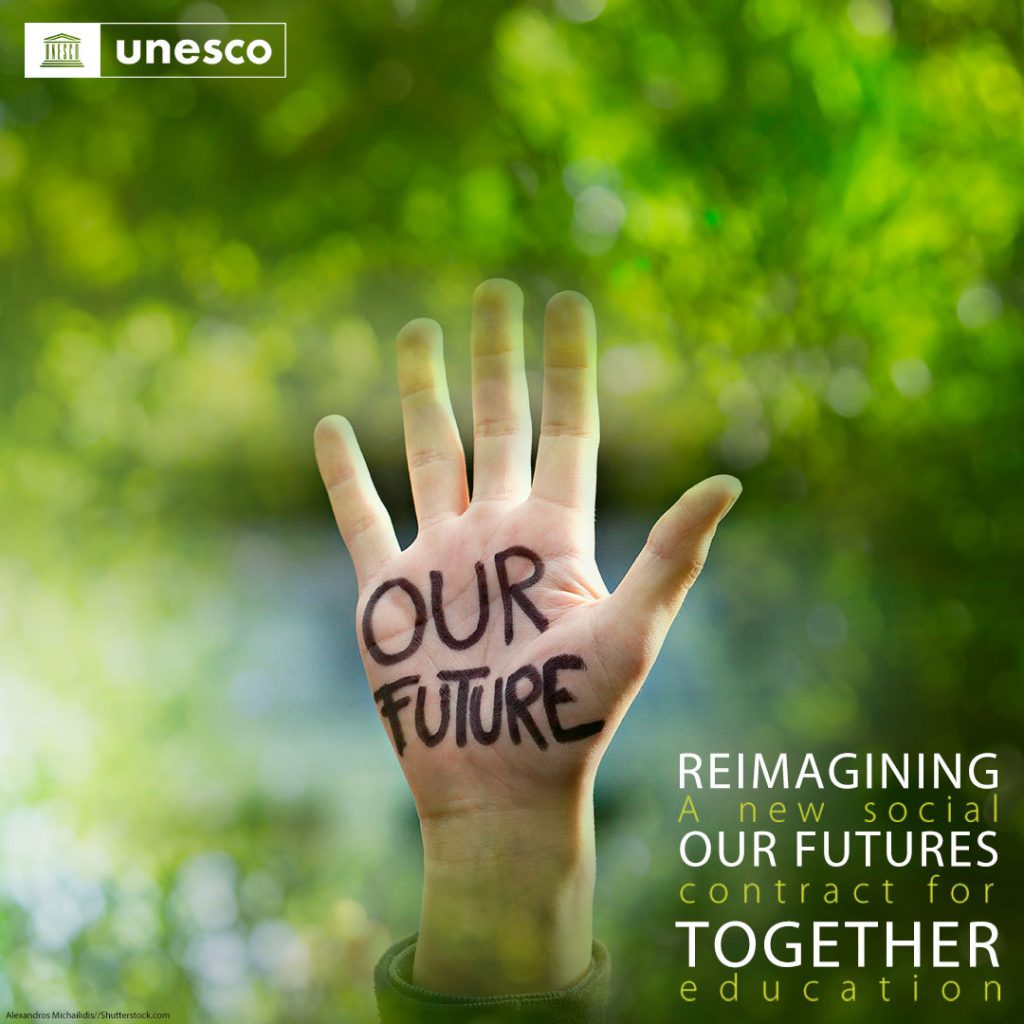The Futures of Education report is a chance to depart from our current ‘unsustainable path’ in education, and build new relationships, with each other, with the planet, and with technology, writes David Atchoarena

On 10 November 2021, the much-anticipated UNESCO report, Reimagining our futures together: A new social contract for education, was launched in Paris at the organization’s General Conference. It was prepared by the International Commission on the Futures of Education under the leadership of Her Excellency Madame Sahle-Work Zewde, President of the Federal Democratic Republic of Ethiopia.
The report follows in the tradition of the Faure Commission’s 1972 report, Learning to Be: The World of Education Today and Tomorrow, and the Delors Commission’s report of 1996, Learning: The Treasure Within. Due to the rapid changes in our globalized world and the rising importance of education and lifelong learning therein, this year’s report could not come at a better time. Global challenges such as the climate crisis, technological and demographic change, and inequalities further exacerbated by the COVID-19 pandemic require urgent action. The world is at a turning point, the members of the International Commission on the Futures of Education argue: we can continue on the current ‘unsustainable path’ or radically change course. How we respond to these challenges will determine what future lies ahead.
The report proposes a new social contract for education – one that aims to rebuild our relationships with each other, with the planet, and with technology. It argues that this new social contract is our chance to repair past injustices and transform the future. Knowledge and learning are the basis for renewal and transformation, the report recognizes. To this end, the report proposes a new social contract for education, focusing on the public purposes of education in serving the common good.
While it acknowledges the challenges the world faces, the report comes from a place of hope and optimism, aiming to build on climate activism and the spirit of solidarity and civic action that emerged during the pandemic: ‘In a new social contract for education, we should enjoy and expand enriching educational opportunities that take place throughout life and in different cultural and social spaces’.
The report calls for the recognition of a right to education for all throughout life, as a foundational principle of the social contract for education, just as the recently presented Common Agenda, from the UN Secretary-General Antonio Guterres, does. In its Embracing a culture of lifelong learning report, published in 2020, UIL offers policy directions to make lifelong learning the governing principle of education systems. Among other measures, establishing lifelong learning as a human right would require countries across the globe to develop a legal framework opening the way to a universal entitlement to learning throughout life.
To make this idea a reality, the Futures of Education report foresees a global movement around the new social contract for education. It calls for broad participation of stakeholders – both state and non-state actors. In her foreword, Her Excellency Madame Sahle-Work Zewde writes ‘Our hope is that the proposals contained here, and the public dialogue and collective action called for, will serve as a catalyst to shape futures for humanity and the planet that are peaceful, just, and sustainable.’
I invite our partners around the world and other stakeholders committed to lifelong learning to be part of that global movement. Join us in acting to make this social contract come alive. Share your ideas, challenges and solutions with us. Only collaboratively can we expand lifelong learning opportunities for all, women and men, including the most vulnerable, and ultimately extend the right to education to a right to lifelong learning.
David Atchoarena is the Director of the UNESCO Institute for Lifelong Learning

Education is a right and poor countries should see non formal education as a tool for life long education. The conceptual walls of education should be expanded to ensure education for all. Vocational education and community literacy centres should be encouraged to get learning to all nooks and crannies